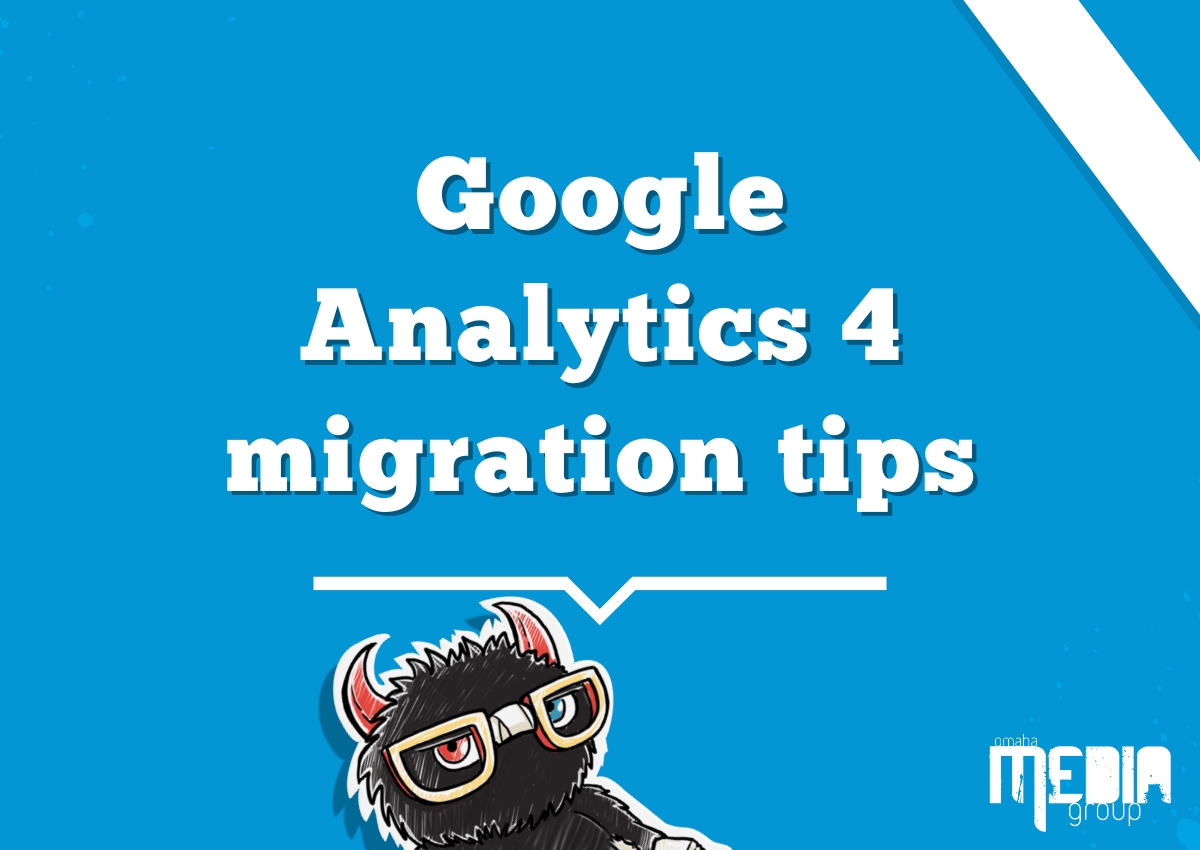 https://www.omahamediagroup.com/images/uploads/monster_gallery/Omaha-Media-Group-Black.jpg
admin
https://www.omahamediagroup.com/images/uploads/monster_gallery/Omaha-Media-Group-Black.jpg
admin
Google Analytics 4 migration tips

The clock is ticking for website owners and marketers who still have not switched their Universal Analytics to Google Analytics 4. On July 1, 2023, your Universal Analytics properties will stop collecting data.
It is important for website owners and marketers to make the migration before this date because Universal Analytics will stop recording data on July 1, 2023, and after July 1, 2023, you will not be able to view historical reports of previous data in Universal Analytics for up to six months.
Google Analytics 4 new features include providing advanced insights and improved tracking capabilities. Migrating from the previous version to GA4 requires careful planning and execution. That is why our SEO agency Omaha team wants to share some essential tips and guidelines to ensure a smooth transition, enabling businesses to harness the power of GA4 and drive data-driven decision-making.
Google Analytics 4 migration tips
Conduct a thorough data audit
Prior to migrating, it is important to perform a thorough data audit to gain a better understanding of your current data structure and the metrics and dimensions being tracked. This will help identify any inconsistencies or missing information that need to be addressed during the migration and ensure a seamless transfer of data to GA4 while maintaining data accuracy for reliable reporting.
Plan your implementation strategy
To successfully implement GA4, it's important to have a clear strategy. Start by deciding which websites, apps, or properties will be moved and create a timeline for the migration process. Don't forget to review your tracking setup and make any necessary adjustments like defining new events, custom dimensions, or enhanced measurement features that align with your business goals and KPIs.
Set up parallel tracking
For a smooth transition, it's recommended to enable parallel tracking by running both the existing version and GA4 at the same time. This way, you can collect data from both systems simultaneously, ensuring data continuity while you become familiar with GA4's features and validate its accuracy.
Update tracking codes and tags
To ensure accurate data collection for the new platform, it's important to update your website and app tracking codes and tags with the GA4 tracking snippet or SDK. This involves replacing the previous version's tracking code, like Universal Analytics, with the GA4 code. Don't forget to test the implementation across different devices and platforms to ensure that data capture is precise.
Create new reports and dashboards
With the new reporting interface offered by GA4, you can make the most of its capabilities by creating custom reports and dashboards that cater to your business needs. Determine the important metrics and dimensions that align with your objectives and generate personalized reports that offer actionable insights. Try out GA4's analysis tools, including the Exploration feature and predictive metrics, to extract valuable insights.
Train your team and seek support
To fully utilize GA4, it's important to train your team on the new features and functionalities. Encourage collaboration and knowledge sharing among team members to maximize the platform's potential. If you encounter any migration challenges or questions, seek support from resources such as Google's Analytics Help Center, community forums, and official documentation.
Hire an SEO agency Omaha team!
By following these migration tips, businesses can smoothly transition to GA4. Reach out to us to help you make the migration process smoother and also help increase your website’s organic traffic using our SEO services.
Hire the team to help you with your website, app, or other marketing needs.
We have a team of digital marketers who can help plan and bring to life all your digital marketing strategies. They can help with social media marketing, email marketing, and digital advertising!
CONTACT US




Comments